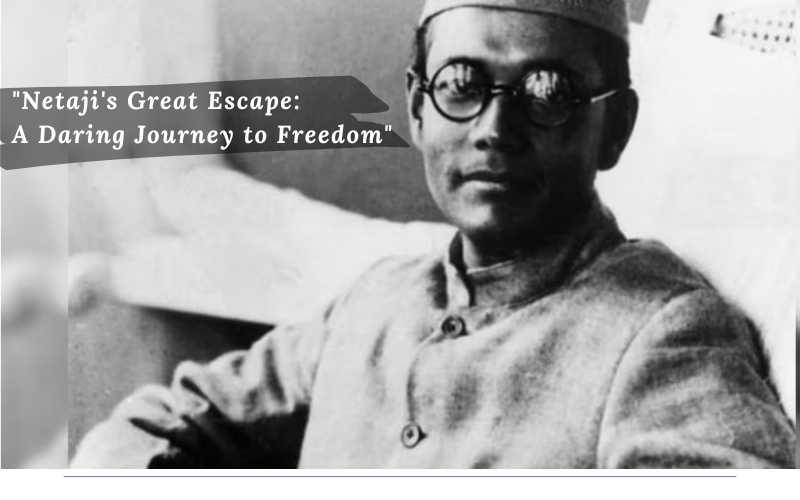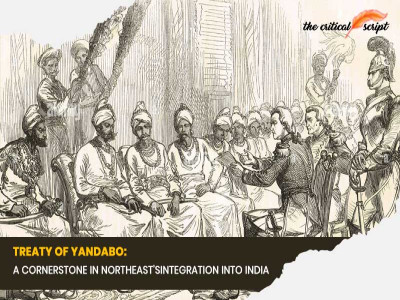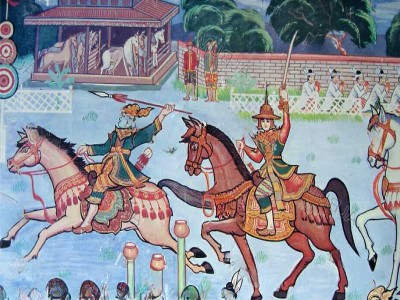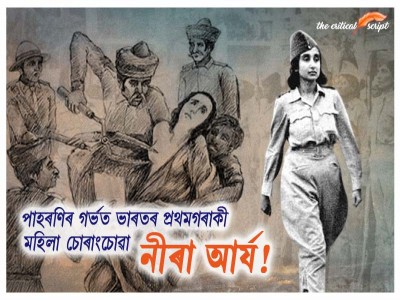
"Netaji's Great Escape: A Daring Journey to Freedom"
Subhas Chandra Bose, known as Netaji, remains a towering figure in India's struggle for independence. One of the most intriguing chapters in his life is the daring escape from house arrest in Calcutta in 1941. This escape marked a turning point in Bose's journey and had far-reaching implications for the Indian independence movement.
In the early 1940s, the Indian independence movement was gaining momentum, and leaders like Subhas Chandra Bose were at the forefront of the fight against British colonial rule. However, Bose found himself under house arrest by the British authorities in Calcutta, limiting his ability to actively participate in the movement.
Undeterred by confinement, Bose hatched an audacious plan to escape and reach Germany, seeking support for India's cause from Adolf Hitler and Benito Mussolini. The plan involved a perilous journey overland through Afghanistan and Russia, a route that was fraught with challenges and dangers.
One of the most dramatic episodes unfolded when Netaji, under cover of night, ingeniously slipped away from the clutches of the British authorities, leaving behind a decoy to confound his pursuers.
Netaji's destination was Russia, and his chosen route took him through the treacherous terrain of Kabul. Disguised as a life insurance agent, he navigated the perilous path to reach his intended destination. The journey itself was fraught with challenges, but Bose's determination fuelled his resolve to break free from the shackles of house arrest.
Dr. Kitchlew's guidance proved instrumental in Netaji's ability to blend into the Afghan environment seamlessly. Understanding the nuances of the local culture became a key asset, enabling Netaji to navigate through the unfamiliar territory without arousing suspicion. This cultural camouflage was pivotal in safeguarding his identity as he continued his journey.
After successfully evading British authorities using the guise of an Italian nobleman, "Count Orlando Mazzotta," Bose traveled to Moscow on an Italian passport.
Upon reaching Germany, Bose sought support for the Indian National Army (INA), aiming to enlist Axis powers in the fight against British rule. His efforts led to the formation of the INA, a force composed of Indian prisoners of war and expatriates, which played a significant role in the later stages of World War II.
Netaji's escape remains a remarkable episode in the history of India's struggle for independence. It showcased Bose's strategic acumen, resourcefulness, and unyielding commitment to the cause of freeing India from colonial shackles. The formation of the INA and its contributions to the independence movement underscores the lasting impact of Netaji's escape on the trajectory of India's history.
Disclaimer: The opinions expressed in this article are those of the author's. They do not purport to reflect the opinions or views of The Critical Script or its editor.

Newsletter!!!
Subscribe to our weekly Newsletter and stay tuned.

















Related Comments